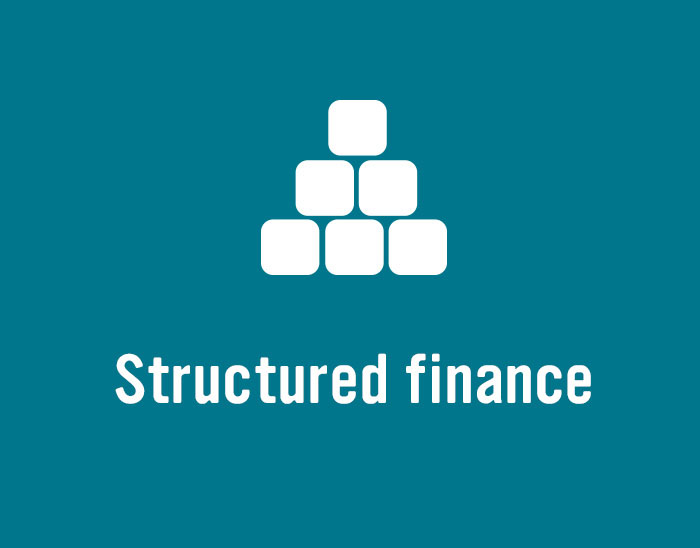
Prime focus keeps Avanti on track
New Zealand’s central bank moved early against inflation with a quick succession of rate rises starting in October 2021, in the process sparking a house price correction and ushering in a new era for the local credit market. Avanti Finance anticipates a plateau in credit spreads as it prepares a fresh round of funding, including plans for a debut nonmortgage securitisation deal.
Rising interest rates could spell trouble for lenders. But it is a case of so far so good for Avanti Finance. Borrowers built resilience through the pandemic, the economy is running at almost full employment and changes to New Zealand lending rules late in 2021 defined a stricter environment for credit provision – a double impact with the Reserve Bank of New Zealand (RBNZ) tightening monetary policy.
“There had to be a return to inflation at some point and our expectation was that this would happen throughout this year,” says Avanti’s Auckland-based group treasurer, Paul Jamieson.
Avanti was prepared for the change in rates direction, having entered hedging arrangements in mid-2021 at what Jamieson calls “very good rates”. He explains: “We are well hedged for the next couple of years using interest-rate swaps and some FX swaps.”
As the RBNZ lifted the official cash rate to 3 per cent in August 2022 – a 2.75 per cent increase in less than a year – house prices in New Zealand have drifted about 10 per cent lower.
Jamieson says the unwind has been “relatively orderly” to date, adding that Avanti anticipates a 15 per cent fall from the mid-2021 peak to take house prices back to early 2021 levels. Mortgage demand has also softened and auction clearance rates are low, he adds.
Property had enjoyed a strong run, says Avanti’s head of funding, Caroline Dunlop, boosted by the RBNZ’s removal of loan-to-value ratio (LVR) restrictions during the pandemic.
Looking ahead, Avanti is keen to continue to diversify funding, including for its Australian assets. It was contemplating a nonmortgage asset-backed securities (ABS) deal a year ago but a lot has changed since then.
It is now planning execution in the first half of 2023, in the process giving investors access to receivables from Australian prime-borrowers’ purchases of new and near-new used vehicles financed by Avanti. “The book is growing and performing well in Australia,” says Jamieson, who anticipates an ABS deal of about A$300 million (US$203 million).
Car loans have performed well in New Zealand and Australia, helped by demand for new vehicles but constrained by supply – a global complaint. “It is the supply chain,” says Dunlop. “Manufacturers are getting fewer cars on ships and to their destinations.”
Meanwhile, electric vehicles (EVs) are rolling onto New Zealand roads at a steady clip. EV buyers can earn a government rebate of up to a NZ$7,500 (US$4,566), and Tesla earned a spot among the top three car brands for sales in November last year. Avanti has a finance product specific to EVs in New Zealand.
Avanti’s most recent funding deals include a NZ$350 million RMBS in August 2021 and a A$100 million senior unsecured floating-rate note (FRN) in February 2022. The RMBS and ABS markets have since become more expensive, Jamieson says, although he thinks a return to stability is in the air.
Issuance has still been possible although more support from lead managers has often been required. For its own part, Avanti mandated its return to the domestic RMBS market in September and Jamieson says it is also planning another FRN. “When it comes to credit spreads – though not base rates – there is a sense that the market may have reached or will shortly reach the peak,” Jamieson comments. “We have to talk with our investors further but we are relatively confident we will be able to get issuance away.”
With COVID-19 slowly fading in the national psyche, astute lenders can apply lessons from the pandemic to prepare for unexpected risks ahead. Avanti ran tests based on lower repayments and higher arrears, and reached the conclusion that its funding vehicles could take a 50 per cent drop in income and still function. “This is a significant buffer and shows the resilience to shocks of our structures,” says Jamieson.
A significant decline in property prices would be a test for lenders’ book quality, nonetheless. But Jamieson reveals that Avanti’s model suggests it would take a roughly 35 per cent fall in property values – under very conservative default assumptions – before funding structures were materially affected.
The plan for the year ahead is to grow the loan book and funding. Achieving this will mean taking business from the major banks, Jamieson says, including more customers being processed via Avanti’s broker channel. “We are not trying to widen our credit profile but we are writing more prime loans,” he adds.

nonbank Yearbook 2023
KangaNews's eighth annual guide to the business and funding trends in Australia's nonbank financial-institution sector.









